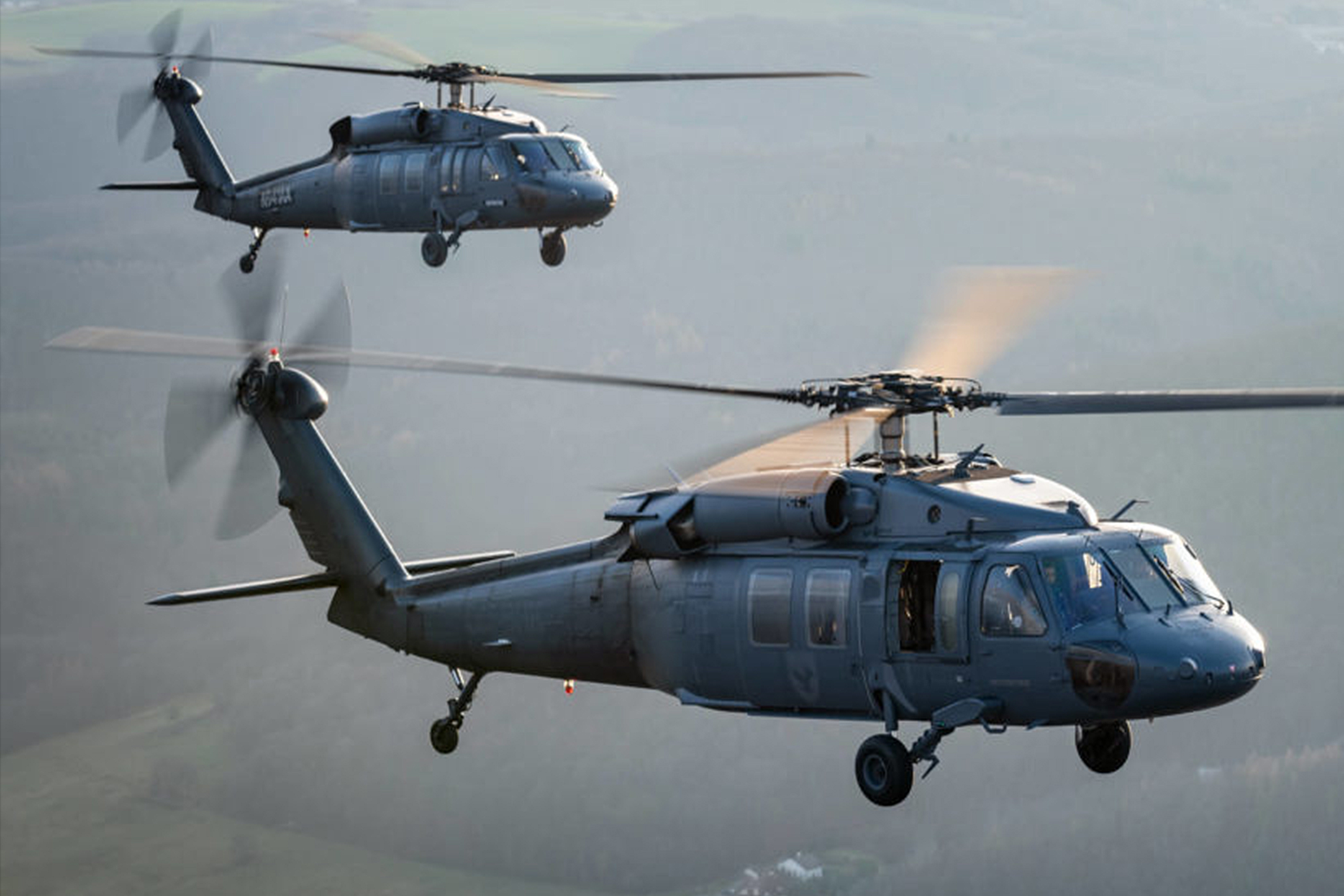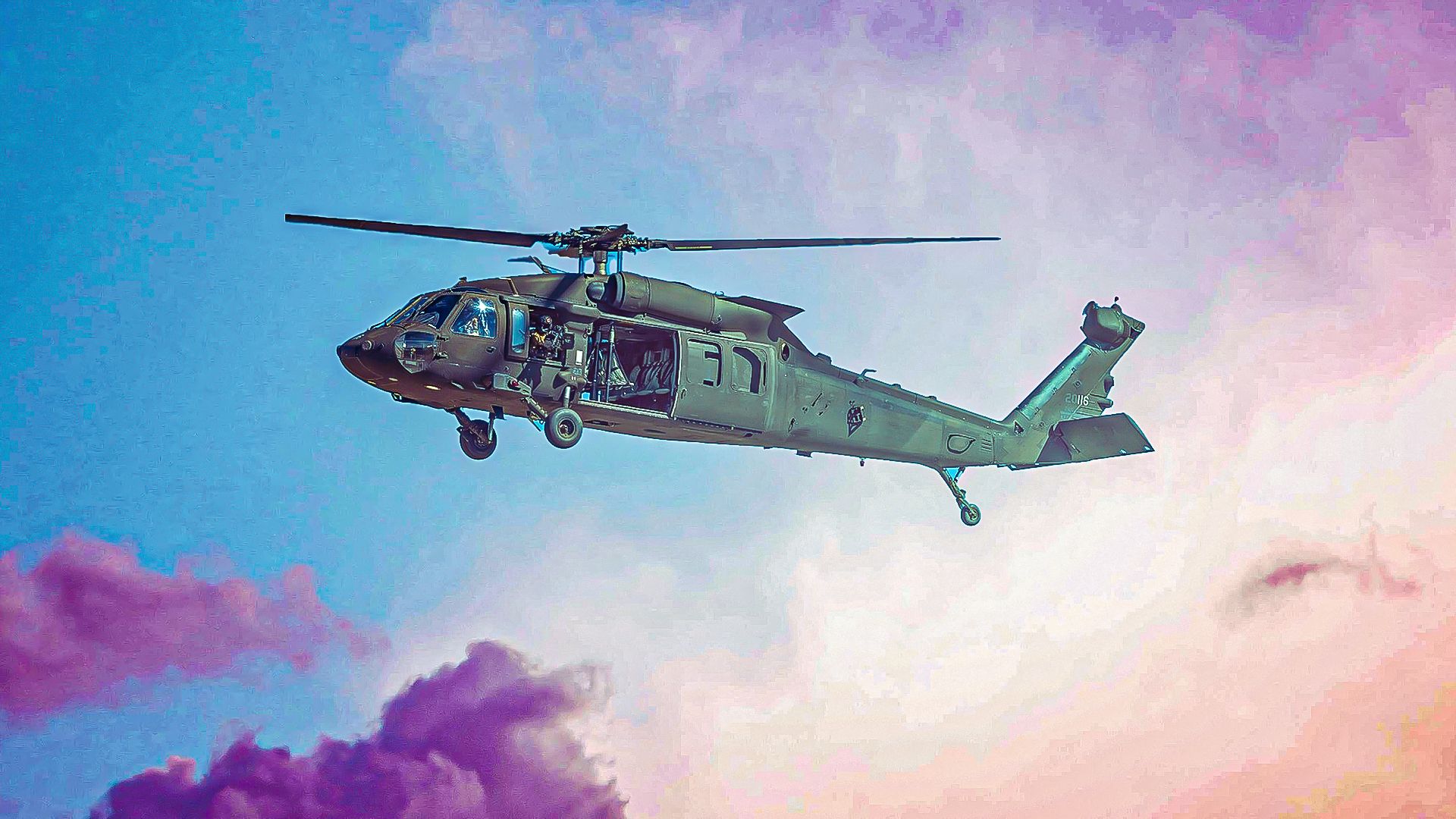Exactly How the UH60 Blackhawk Helicopter Has Actually Changed Aerial Combat and Transport
Exactly How the UH60 Blackhawk Helicopter Has Actually Changed Aerial Combat and Transport
Blog Article
Crucial Parts of the UH60 Blackhawk Helicopter and Their Functions in Helicopter Operation

The UH-60 Blackhawk helicopter is a diverse airplane, defined by numerous crucial components that play crucial functions in its operational performance. Recognizing these elements is vital, as they jointly shape the helicopter's capabilities in diverse settings and situations.
Blades System

The rotor blades are built from sophisticated composite products, permitting reduced weight and enhanced durability - UH60 Blackhawk Helicopter. The cutting-edge design incorporates a totally expressed blades head, which assists in smooth and responsive handling by permitting blade flapping and feathering. This flexibility is vital for navigating in numerous functional environments, including metropolitan and mountainous terrains
The rotor system's efficiency and dependability add dramatically to the Blackhawk's general efficiency, making it a vital asset for different army and private objectives. The combination of advanced modern technology in the rotor system underscores the Blackhawk's standing as a versatile and formidable helicopter in modern aviation.
Engine Parts
Effective and effective engine parts are fundamental to the performance of the UH60 Blackhawk helicopter. At the core of its operation are the T700-GE-701C turboshaft engines, which give the required thrust and dependability for numerous objectives. Each engine generates roughly 1,800 shaft horsepower, making it possible for the helicopter to perform in diverse environments and conditions.
The engine's style incorporates a multi-stage axial and centrifugal compressor, which maximizes air movement and boosts total effectiveness. This is enhanced by the use of advanced materials and cooling down technologies, guaranteeing that the engine operates successfully also under high-stress scenarios. The dual-engine configuration offers redundancy, improving safety and operational ability in the occasion of an engine failure.
In addition, the engine control system plays an essential duty in taking care of engine efficiency, adjusting fuel circulation and various other specifications to maintain optimal operation. Integrated wellness surveillance systems continuously evaluate engine condition, supplying real-time information that help in upkeep and operational decision-making.
Avionics Collection
Central to the operational abilities of the UH60 Blackhawk helicopter is its innovative avionics suite, which integrates innovative navigating, interaction, and flight control systems. This suite improves situational understanding and functional performance, permitting pilots to do complicated objectives in diverse settings.
The Blackhawk's avionics collection includes a digital flight control system that automates different flight jobs, decreasing pilot work and increasing safety and security throughout important operations. The system includes a multi-function screen that supplies real-time data on aircraft goal, performance, and navigating criteria, allowing notified decision-making.

Moreover, the collection is outfitted with sophisticated climate radar and surface recognition systems, boosting functional capacities in site web unfavorable weather problems. The mix of these modern technologies makes certain that the UH60 Blackhawk can properly carry out a wide variety of missions, from army transportation to medical emptying, while keeping a high level of security and reliability.
Airframe Structure
A durable airframe framework is vital for the UH60 Blackhawk helicopter, making sure toughness and efficiency sought after functional settings. The airframe is constructed from sophisticated composite materials and aluminum alloys, which give a positive strength-to-weight ratio. This style minimizes overall weight while maximizing structural integrity, crucial for the helicopter's agility and fuel performance.
The airframe's design likewise incorporates attributes that enhance survivability and decrease upkeep requirements. The use of protective coatings and corrosion-resistant products helps alleviate wear from ecological blog direct exposure. Additionally, the airframe's modular style enables simpler fixings and upgrades, adding to the helicopter's long life and operational readiness.
Aerodynamically, the airframe is structured to reduce drag, allowing the Blackhawk to attain outstanding speed and maneuverability - UH60 Blackhawk Helicopter. The body's arrangement supports different goal profiles, from troop transport to medical emptying, by giving sufficient room for employees and equipment while keeping security throughout trip
Touchdown Gear
While the airframe of the UH60 Blackhawk supplies crucial structural support, the touchdown equipment plays a critical duty in making certain safe procedures during touchdown, ground, and departure maneuvers. The UH60 is furnished with a tri-cycle landing gear system, consisting of two main wheels and a tail you could check here wheel, which offers stability and equilibrium when the helicopter gets on the ground.
The major wheels are developed to take in shock throughout touchdown and facilitate smooth cabbing on numerous surface areas. The gear's durable layout permits the helicopter to endure considerable forces experienced during rough landings or ground procedures. Additionally, the wheels are fitted with tires that provide excellent grip, making sure trusted efficiency in diverse settings, consisting of unequal or soft terrain.

Conclusion
In summary, the UH-60 Blackhawk helicopter's functional effectiveness is attributable to its important parts. Collectively, these components add to the helicopter's capacity to perform a vast array of objectives efficiently.
The rotor system of the UH60 Blackhawk helicopter is an essential component that operates with impressive efficiency. The integration of advanced technology in the blades system emphasizes the Blackhawk's status as a flexible and formidable helicopter in contemporary aviation.
Effective and reliable engine elements are basic to the performance of the UH60 Blackhawk helicopter.A robust airframe structure is vital for the UH60 Blackhawk helicopter, making sure resilience and efficiency in requiring functional atmospheres. UH60 Blackhawk Helicopter. Overall, the touchdown equipment of the UH60 Blackhawk is an essential component that improves functional safety and security and efficiency, sustaining the helicopter's adaptability in various objective accounts
Report this page